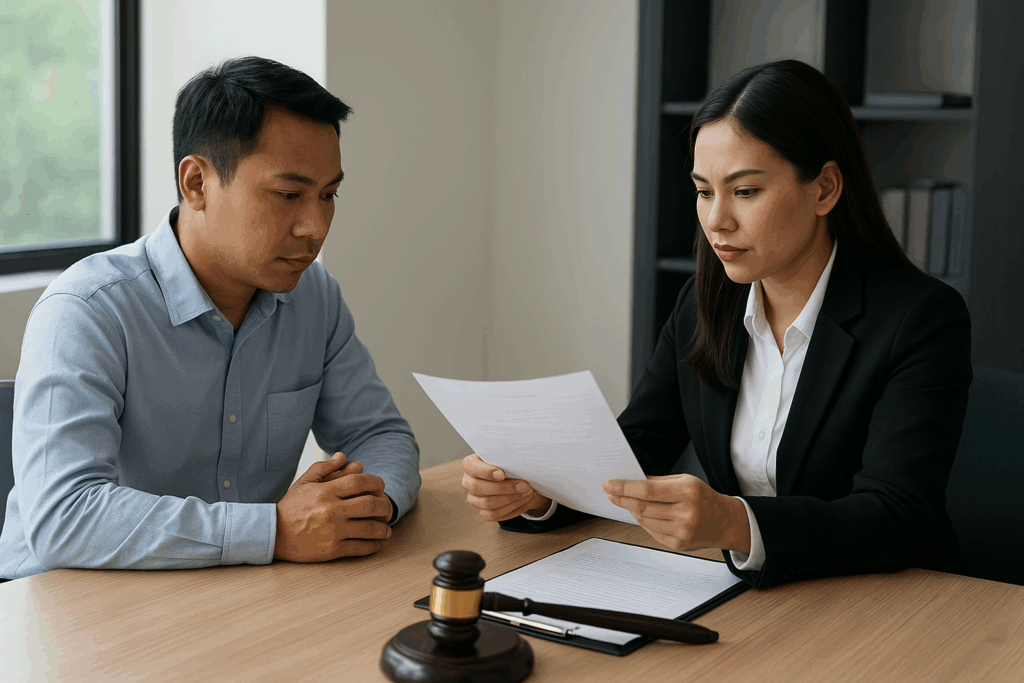Request for Fairness to the Public Prosecutor in Thailand (New 2024 Regulation)

A Request for Fairness to the Public Prosecutor in Thailand is an essential safeguard for ensuring justice in criminal proceedings. It allows both victims and defendants to seek review when they believe the process has been unfair or incomplete. Under the new 2024 regulation, the procedure has become stricter, with specific requirements for filing and eligibility. For anyone involved in the criminal justice process, consulting with a Lead law firm in Bangkok ensures that the petition is correctly prepared and legally sound.
To learn more about prosecutorial guidelines in Thailand, visit the Office of the Attorney General of Thailand (external link).
Understanding a Request for Fairness
Definition and Purpose
A Request for Fairness is a legal mechanism that enables a party to petition the prosecutor to reconsider a decision in a criminal case. This ensures that the principles of justice, equality, and due process are respected.
Common Situations of Unfairness
-
Failure to interview key witnesses.
-
Omission of important evidence, such as CCTV footage.
-
Charges that are either disproportionately harsh or too lenient.
Legal Basis in Thailand
Statutory Framework
The authority for a Request for Fairness lies with the Office of the Attorney General. This office has the duty to supervise prosecutorial decisions and guarantee compliance with law and fairness.
Rights of Victims and Defendants
Both parties in a criminal case may exercise this right. Victims may request review if they feel charges do not reflect the gravity of the offense, while defendants may file when evidence in their favor has been overlooked.
Key Changes under the 2024 Regulation
Personal Appearance Requirement
Petitioners must appear in person to file the request. A lawyer cannot submit it on their behalf, except when the defendant is detained without bail.
Completeness of the Written Petition
The petition must include:
-
Full name and address of the petitioner.
-
Case details.
-
Facts indicating unfairness.
-
Requested action by the prosecutor.
Timely Submission
The request must be filed before a final prosecutorial decision. Late or dilatory petitions, or those made to delay proceedings, may be rejected.
Filing Procedure
Step-by-Step Process
-
Prepare a written petition with supporting documents.
-
Appear before the prosecutor to file the request.
-
Provide any evidence such as documents, witness lists, or recordings.
-
Await formal review and decision.
Expected Outcomes
The prosecutor may order further investigation, revise charges, or maintain the original decision.
Why the Regulation Was Updated
-
Preventing abuse of process – to stop petitions filed merely to delay trials.
-
Promoting transparency – ensuring decisions are reviewed openly.
-
Building public trust – strengthening confidence in the justice system.
For broader context on prosecutorial integrity, see the UNODC Guidelines on Prosecutorial Accountability (external link).
Comparative Perspectives
Many jurisdictions provide similar remedies:
-
United States – motions for reconsideration or supervisory review.
-
United Kingdom – oversight through the Crown Prosecution Service.
-
Civil law countries – allow hierarchical review within prosecutorial offices.
Challenges of the 2024 Regulation
-
Accessibility issues for defendants without legal representation.
-
Burden on detainees who may find it difficult to file in person.
-
Wide discretion given to prosecutors may still limit relief.
Guidance for Petitioners and Practitioners
-
Ensure the petition is clear, concise, and fact-based.
-
Provide corroborating evidence whenever possible.
-
Victims should emphasize public interest and proportionality of charges.
-
Defendants should highlight overlooked exculpatory evidence.
-
A Lead law firm in Bangkok can assist in drafting persuasive petitions and ensuring compliance with procedural requirements.
Hypothetical Case Scenarios
-
Under-charged Offense – A victim petitions after the prosecutor files only a minor charge despite serious injury.
-
Overlooked Evidence – A defendant requests review when CCTV footage proving alibi was ignored.
-
Delayed Petition – A late submission is rejected due to timing under the new regulation.
Conclusion
The Request for Fairness to the Public Prosecutor in Thailand is a vital legal right that ensures justice is not compromised by oversight or unfair prosecutorial discretion. With the 2024 regulation, stricter procedures now govern the process, requiring petitioners to appear personally and submit fully detailed petitions without delay.
For individuals navigating this process, working with a Lead law firm in Bangkok provides the best chance of success. By ensuring compliance with the regulation and presenting compelling legal arguments, petitioners can maximize their opportunity for a fair review within the Thai justice system.
